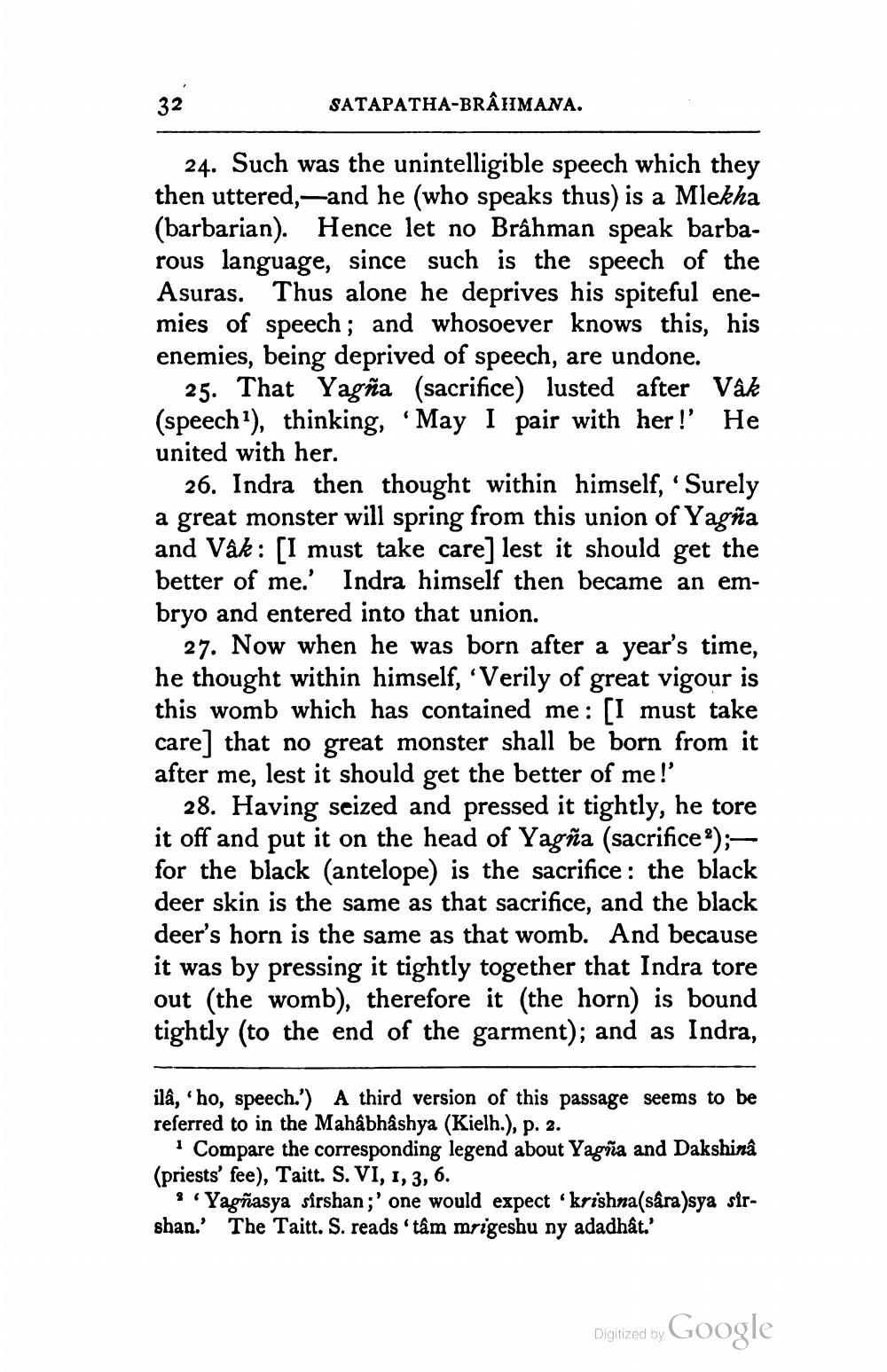________________
SATAPATHA-BRÂHIMANA.
24. Such was the unintelligible speech which they then uttered, and he (who speaks thus) is a Mlekha (barbarian). Hence let no Brahman speak barbarous language, since such is the speech of the Asuras. Thus alone he deprives his spiteful enemies of speech; and whosoever knows this, his enemies, being deprived of speech, are undone.
25. That Yagña (sacrifice) lusted after Vak (speech"), thinking, May I pair with her!' He united with her.
26. Indra then thought within himself, “Surely a great monster will spring from this union of Yagña and Vak: [I must take care) lest it should get the better of me.' Indra himself then became an embryo and entered into that union.
27. Now when he was born after a year's time, he thought within himself, “Verily of great vigour is this womb which has contained me: [I must take care] that no great monster shall be born from it after me, lest it should get the better of me!'
28. Having seized and pressed it tightly, he tore it off and put it on the head of Yagña (sacrifice);for the black (antelope) is the sacrifice: the black deer skin is the same as that sacrifice, and the black deer's horn is the same as that womb. And because it was by pressing it tightly together that Indra tore out (the womb), therefore it (the horn) is bound tightly (to the end of the garment); and as Indra,
ilâ, “ho, speech.') A third version of this passage seems to be referred to in the Mahâbhâshya (Kielh.), p. 2.
Compare the corresponding legend about Yagña and Dakshina (priests' fee), Taitt. S. VI, 1, 3, 6.
3. Yagñasya sirshan;' one would expect krishna(sara)sya sirshan.' The Taitt. S. reads 'tâm mrigeshu ny adadhất.'
Digitized by Google




